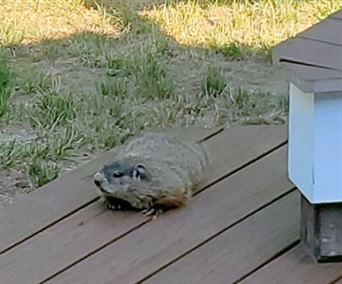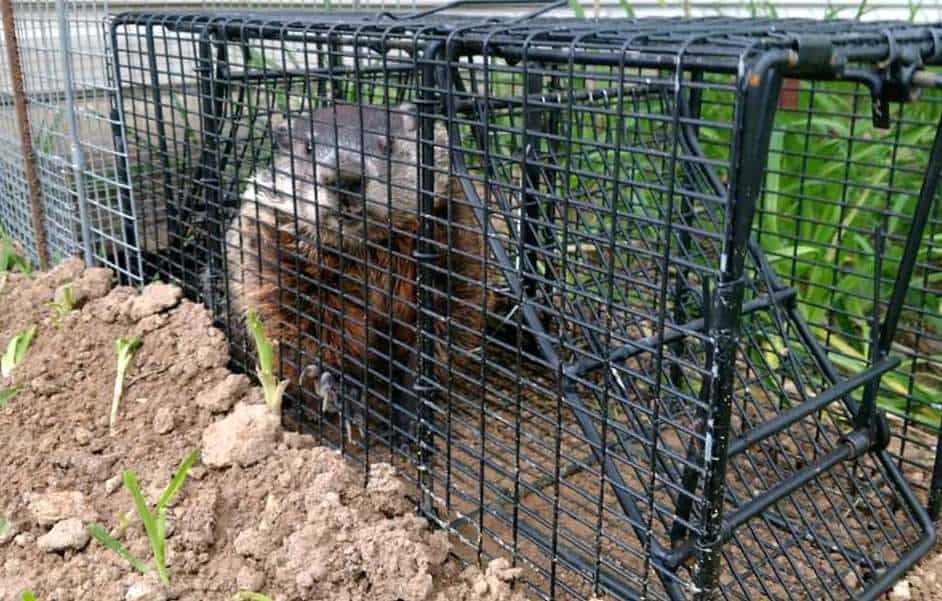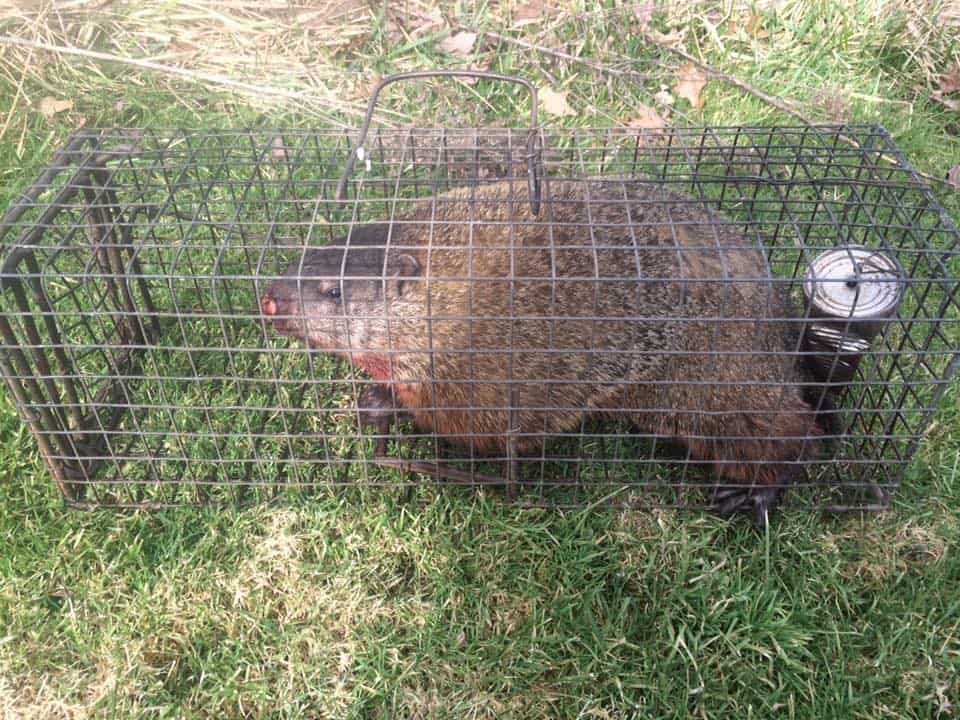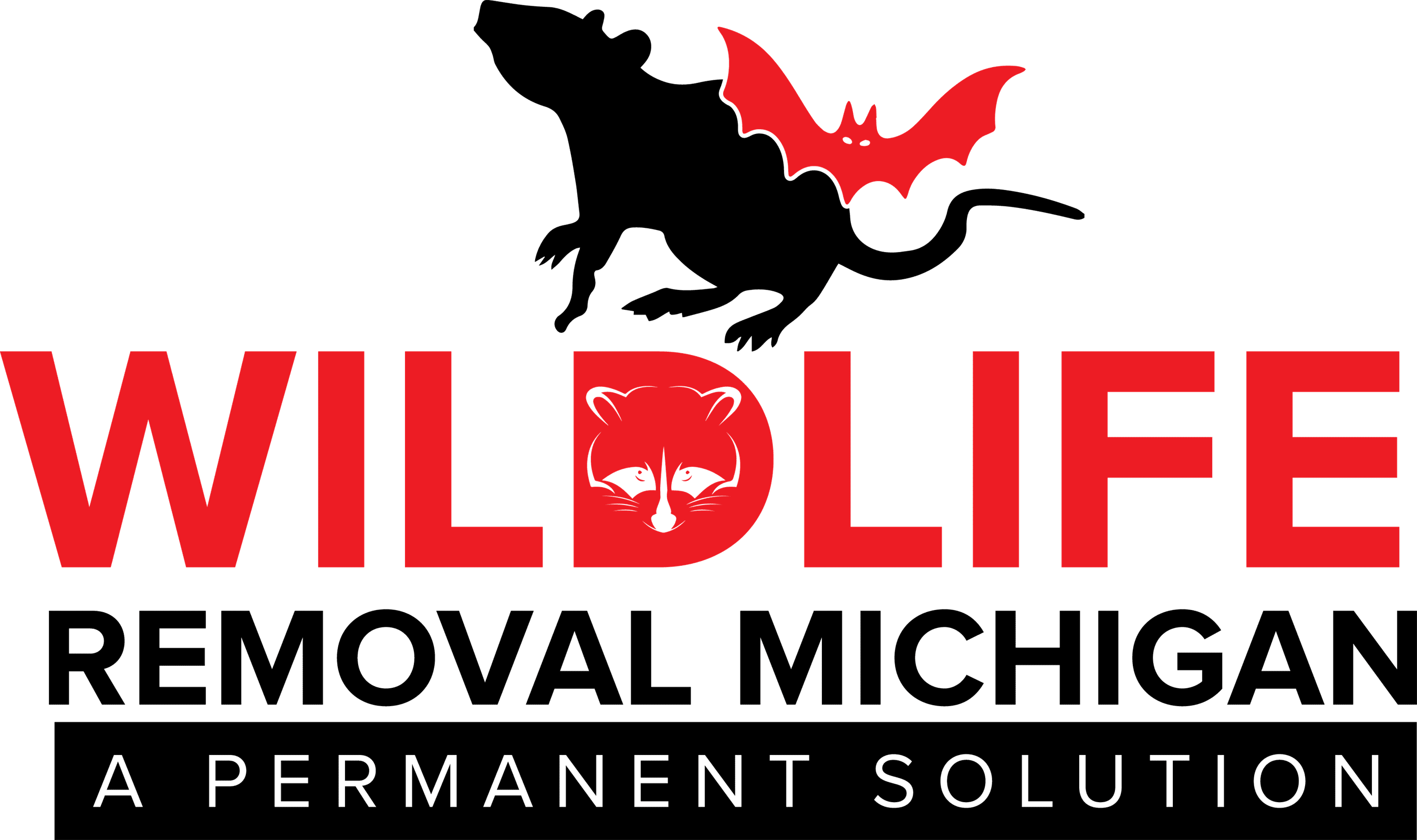Groundhog Removal
Groundhogs, also known as woodchucks, are very destructive creatures that love to burrow in yards. These tunneling rodents are getting to be very commonly found in suburbia, and are rapidly adapting to living around people. Continue reading this article to find out more about groundhogs and how you can get rid of them for good.
What damage do groundhogs cause?
Groundhogs burrow constantly, digging their dens and searching for food. They construct huge groups of interconnected tunnels that cover much of a yard. They especially enjoy digging next to any homes, garages, or any other structures, which is the main reason why groundhogs are problem animals. This has the potential to seriously weaken the foundation of your home and any other buildings. Because a failing foundation is such a big repair bill, it is highly important to get these critters off of your property as soon as you can. In addition to the potential damage to your foundation, they also are known for wreaking havoc on gardens of vegetables and flowers.

How can I prevent groundhogs?
The main problem with groundhogs is that there is no real way to prevent them from coming onto your property. They generally come onto someone’s property because there is an easy source of food nearby, which is pretty much everywhere, as they are herbivores. Any groundhog repellents you may see are generally a waste of money. If you want to reduce your yard’s appeal, consider picking up any fallen fruit from fruit trees and locking up your pet food securely.
How can I catch groundhogs?
Groundhogs are usually removed by the use of cage traps. These traps are safe to use around small children and pets, and are humane, and will not hurt the groundhog. The cage traps are generally baited with some kind of fruit or vegetable or many times with a commercial lure. As easy as it sounds, many times groundhogs are hard to catch. Oftentimes, homeowners eventually have to call a wildlife control company, as the problem generally gets worse.
Why hire Wildlife Removal Michigan?
Wildlife Removal Michigan should always be your first choice for dealing with groundhogs. Our nuisance wildlife experts have years of experience with removing groundhogs and will be able to remove your pests quickly and efficiently. In addition to trapping the animals, our experts can also examine the damage caused by groundhogs and help you figure out what needs repairing. Wildlife Removal Michigan services the state of Michigan, so if you are a resident of Michigan, we would love to help you out with your groundhog problem.

How to Get Rid of Groundhogs
You’re probably not expecting to find a groundhog digging through your property. These rodent-like creatures are mostly found in forests and around streams. But there is a chance they could make a home in your garden or backyard. Here is a great resource at wildlife-removal.com to learn more about groundhogs and how to get rid of them.
Groundhogs are not dangerous to humans, but they can have rabies. Furthermore, these unassuming animals can create a ton of property damage. This is because they dig holes to nest and hibernate in.
In the long term, this could lead to home damage as the holes the groundhog digs makes your house’s foundations less stable. In other words, you need to get rid of groundhogs as soon as you can. We’ll talk about how you can do this here.
Top Ways to Get Rid of Groundhogs From Your Property:
- Preventative Measures Are Important
Groundhogs need material and food to create their nest and really feel comfortable on your property. If you keep sticks, leaves, and other nesting materials out of your yard, this will keep groundhogs from fully burrowing in the ground around your home.
Generally speaking groundhogs like to eat bugs, bark, plants, and vegetables. Keeping these types of foods away from groundhogs is important this way they leave or never dig holes.
- Use Repellent on Groundhog Nests
If the groundhogs have already started to burrow in your yard, try using repellent or think about treating your grass. Groundhogs are not fond of certain smells, especially anything with a chemical scent. You can even spray groundhog nests directly to keep these animals out of your property. Though we don’t suggest using any poisonous substances, as this is not a humane way to deal with groundhogs.
- Fumigate and Flood Groundhog Holes
Another method of removal involves fumigation and flooding. This is more of a last resort option, as both these removal options could create more damage to your property. But, if none of the other methods listed are working, you might have to flood the groundhog’s burrow.
Alternatively, you can also fumigate the tunnels the groundhog is living in. What this means is that you gas the holes they dug, and then seal them in. This is not an ideal method as the gas can be dangerous to you, and it will end up killing the groundhog. Not everyone will be on board with killing a groundhog.
- Try Scaring The Groundhog
As a more humane solution, think about simply scaring the groundhog off your property. Oftentimes, flashing lights and loud sounds can keep groundhogs away or cause them to move to a new burrowing location. Though, this method could end up annoying your nearby neighbors. So proceed with caution if you are trying to scare off groundhogs.
- Keep Your Yard Clean
Again, you want to keep your yard clean. Groundhogs love foraging in yards and gardens for nest supplies. Your initial yard cleaning might help at first. But, you need to keep up with lawn maintenance regularly otherwise the groundhog will stay. Mow your lawn every week and pick up any bark or leaves you find around your home weekly.
- Hire A Professional to Remove The Groundhog
Finally, if you just can’t seem to get rid of the groundhog, don’t worry. Sometimes, you just need a little help to keep animals from coming back to your property. There are plenty of wildlife experts that can help you deal with your groundhog issue.
And, really, it might be better to have someone else remove the groundhog for you. This way the groundhog can be relocated humanely. You don’t want to spend hours of your free time dealing with a groundhog anyway. So, why not let someone who knows what they are doing handle animals on your property?
Contact Wildlife Removal Michigan
In general, groundhogs are not considered dangerous animals. Luckily, these pests carry minimal amounts of diseases and bacteria. But there is a chance that the groundhog on your property has rabies. So, calling in a professional can be helpful if you don’t want to deal with groundhog removal yourself.
Wildlife Removal Michigan can get the job done for you in a timely fashion. Our premium services are tailored to your home and we guarantee that groundhogs and other animals will not bother you again. We can be reached on our website or through our phone number. Please feel free to call us with any questions or concerns.

What Diseases Do Groundhogs Carry?
Groundhogs, also called woodchucks, are herbivorous rodents that feed on a variety of plants and occasionally insects. These animals are naturally aggressive and with voracious appetites. Groundhogs are also excellent tunneling rodents and tend to cause a lot of damage to vegetable gardens. But besides the damages to your garden, groundhogs can also transmit very deadly diseases to humans and pets. If you have groundhogs around your home, be wary of the following diseases they carry;
Rabies: rabies is a very serious disease that can be fatal, and groundhogs happen to be one of the animals that carry this disease. However, rabies can only be transmitted by a rabid groundhog, and symptoms include unusual aggression.
Lyme Disease: Lyme disease is actually transmitted by ticks, and groundhogs act as hosts for them. So, groundhogs indirectly transmit Lyme disease since they harbor ticks. You can get infected by close contact with a groundhog, and symptoms include fever, headache, fatigue, and characteristic bull’s eye rash. If left untreated, it can become more severe and affect the joints, heart, and nervous system.
Roundworm: groundhogs also carry roundworms and can transmit the disease to both humans and pets. Roundworm infection affects the small intestine and the symptoms include diarrhea, vomiting, cough, wheezing, abdominal pain, tiredness, weight loss, worm in feces, etc.
Sylvatic Plague: this is a flea-borne bacterial disease and the parasite responsible for it — Yersinia pestis — is found in groundhogs and other wild rodents such as Prairie dogs. Even dead groundhogs can transmit the disease, and symptoms can manifest within two to six days of exposure to the bacteria. Symptoms of the disease include chills, fever, weakness, swollen and painful lymph nodes.
Tularemia: groundhogs also carry tularemia and can transmit to humans. This infectious disease is caused by the bacterium Francisella tularensis, the disease is also known as rabbit fever or deer fly fever. Tularemia affects the skin, eyes, lungs, and lymph nodes, symptoms include fever, skin ulcers, cough, chest pain, lethargy, difficulty breathing, swollen lymph nodes, etc. Tularemia is highly contagious and can be fatal without treatment.
How do groundhogs transmit diseases?
Groundhogs can transmit disease in many ways, it can either be through bites, through their feces, or by transferring the parasites they carry. These rodents transmit rabies by biting their victims, the rabies virus which is found in the saliva of a rabid groundhog is then transferred to the bloodstream of the victim.
Groundhogs can also spread disease through their feces and urine. Roundworms and the bacteria that cause tularemia are found in the feces of groundhogs, and anyone who comes in contact with groundhog poop is at risk of infection. Finally, groundhogs act as hosts to a variety of parasites including fleas, ticks, mites, and other parasites, and they spread these parasites wherever they go, indirectly transmitting the disease caused by these parasites.
How to get rid of groundhogs
Keep a clean yard
In the quest to keep groundhogs away, the best solution is usually to make sure that your property is not conducive for their dwelling. Groundhogs are always in search of food and a comfortable place to build their nest, make sure that your property is neither of the two. Keeping a clean yard, with plants matter, sticks and vegetables away is very important in discouraging groundhogs. Your lawn should be properly trimmed, and any waste material should be promptly collected and removed.
Call professionals!
If you have a groundhog problem, your best bet is to invite a professional wildlife control company such as Wildlife Control Michigan. Our experts will get the job done for you in a timely fashion. Our premium services are tailored to your home, and we guarantee that groundhogs and other animals will not bother you again. We can be reached on our website or through our phone number. Please feel free to call us with any questions or concerns.

